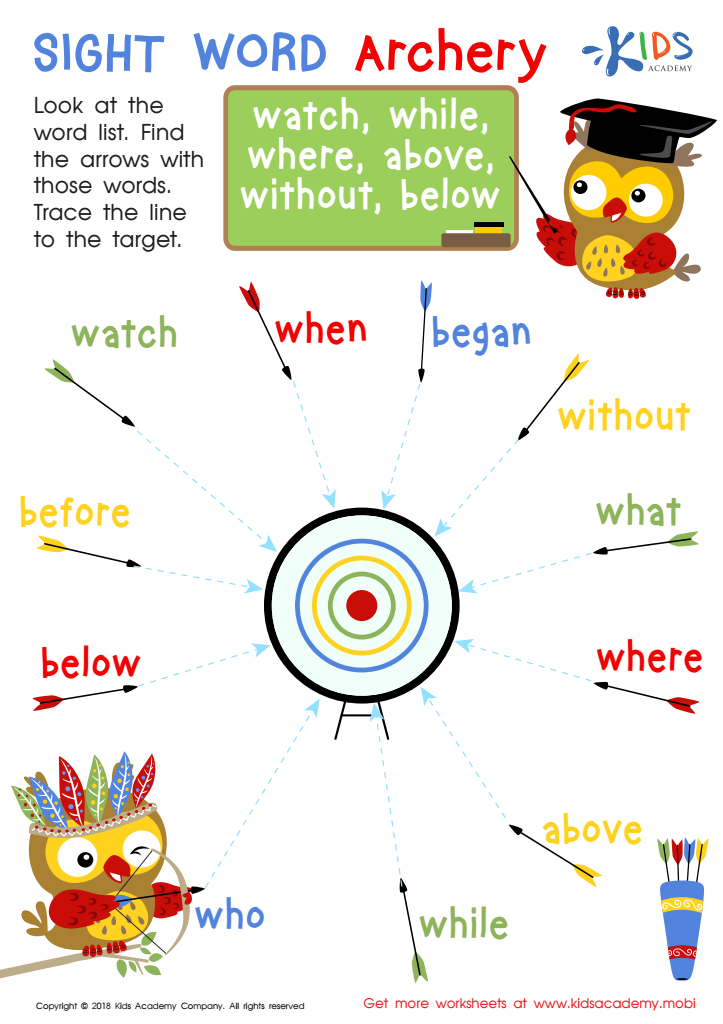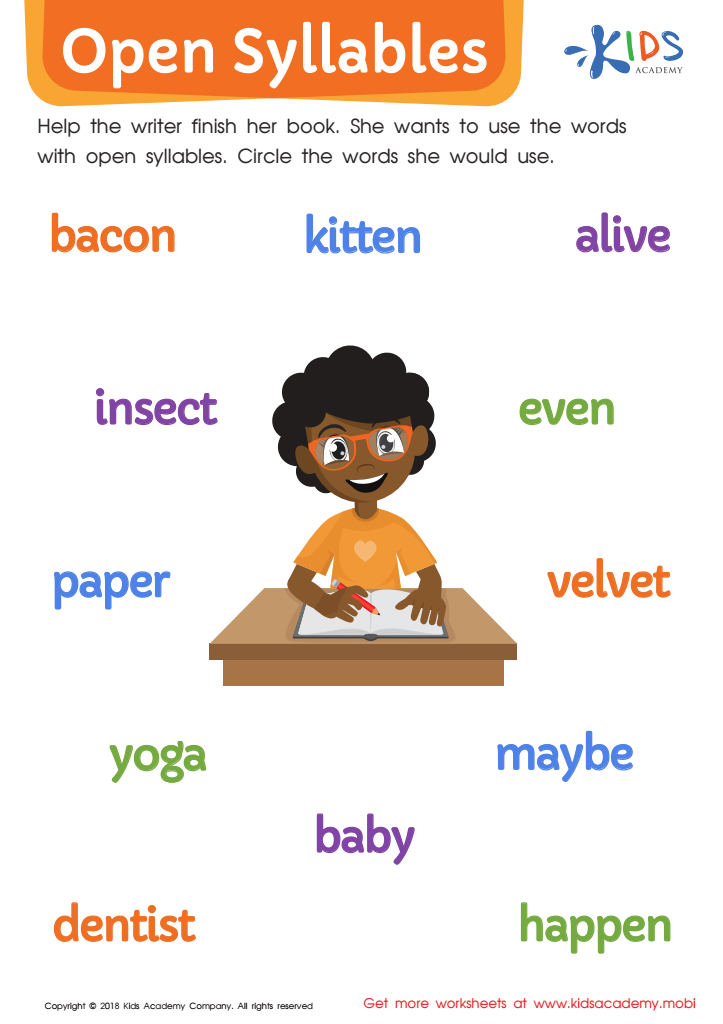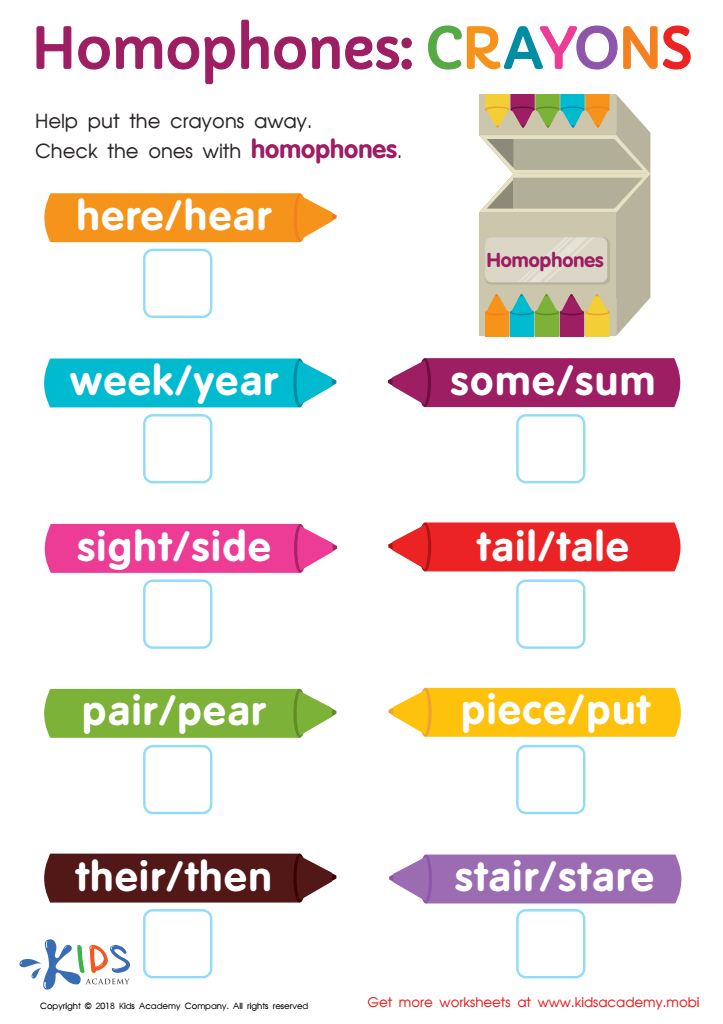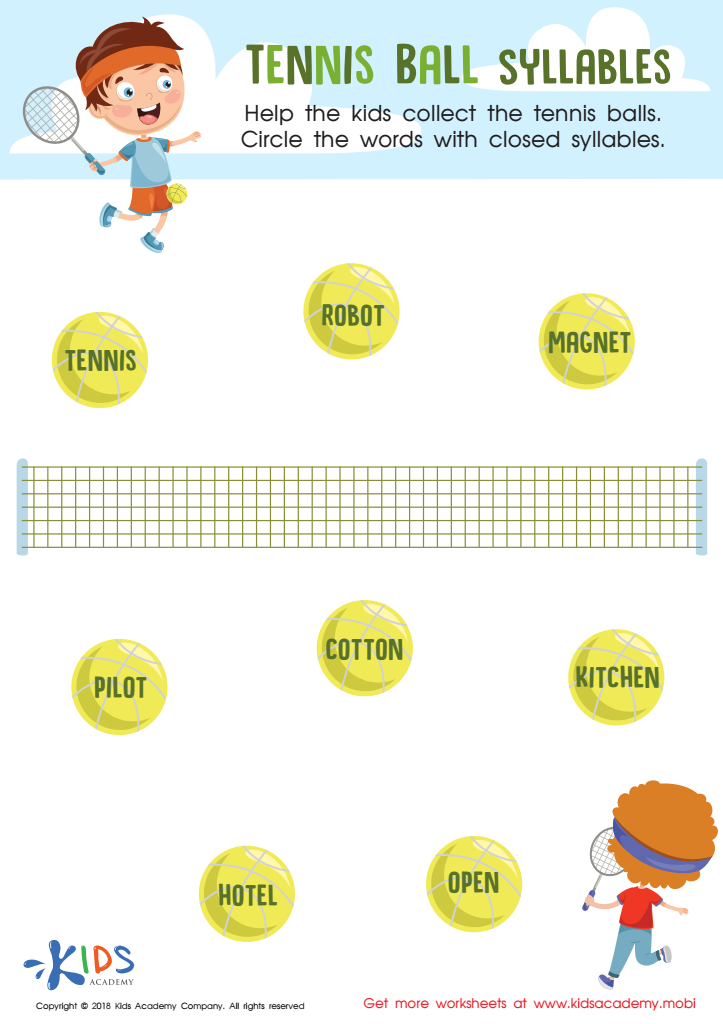Vocabulary enhancement Normal Elementary Phonics Worksheets for Ages 7-8
4 filtered results
-
From - To
Discover our engaging Vocabulary Enhancement Normal Elementary Phonics Worksheets, specifically designed for children aged 7-8. These worksheets not only bolster literacy skills but also foster a love for learning through fun and interactive activities. Tailored to align with the elementary phonics curriculum, they focus on expanding vocabulary, improving reading comprehension, and reinforcing phonetic principles. Each worksheet offers a variety of exercises, including word searches, matching, and fill-in-the-blank tasks, making vocabulary building enjoyable and effective. Empower your young learners with the tools they need to succeed, ensuring a strong foundation for future academic pursuits. Explore our collection and ignite their passion for words today!


Sight Word Archery Worksheet


Open Syllables Worksheet


Homophones: Crayons Worksheet


Tennis Ball Syllables Worksheet
Parents and teachers should prioritize vocabulary enhancement through Normal Elementary Phonics for ages 7-8 because this stage is critical for language development. At this age, children are forming the foundational skills needed for reading comprehension, effective communication, and critical thinking. A robust vocabulary not only aids in reading fluency but also enables children to express themselves more clearly and confidently.
Implementing phonics instruction, which emphasizes the relationship between sounds and letters, helps children decode words systematically. This systematic approach supports the gradual acquisition of new words, enriching their vocabulary. The right phonics program can also promote phonemic awareness, facilitating better spelling and pronunciation.
Additionally, vocabulary skills are linked to academic success. A rich vocabulary can enhance a child’s performance across subjects, including math and science, where understanding terminology is key. By investing in vocabulary enhancement at this impressionable age, educators and parents equip children with the tools they need for lifelong learning and effective communication.
Moreover, increased vocabulary can boost self-esteem and foster a love for reading, setting the stage for more advanced literacy skills in the future. Ultimately, supporting vocabulary development in young learners is crucial for nurturing confident, capable, and articulate individuals.
 Assign to My Students
Assign to My Students









